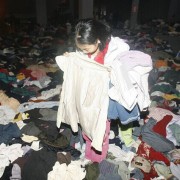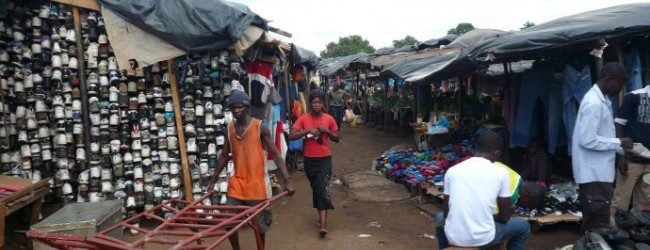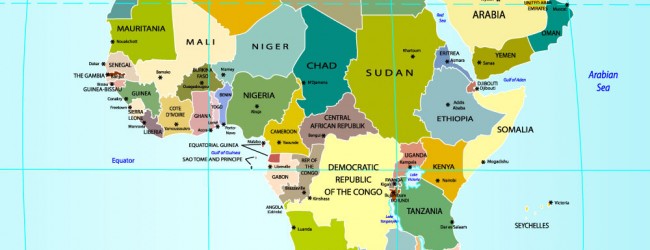A Multitude of African Merchants is Withdrawing from China, Which Brings a Bigger Challenge to Used
Abstract: A multitude of African merchants is withdrawing from Guangzhou because their work cost is too high to make profits. As the economic in China is on its way to transform, a large number of Africans is leaving the Chinese cities which once brought them opportunities.
As the economic in China is on its way to transform, a large number of Africans is leaving the Chinese cities which once brought them opportunities.
Two years ago, there were crowds in Xiaobei Road in Guangdong where it was full of strong African romances: the women from Angola put shopping bags on their head; the men wearing robes from Somalia sold and exchanged foreign currency; Uygur restaurants slaughtered their sheep on the street; the merchants from Congo ordered underwear from Chinese stores; the men from Nigeria went to the African bar for a cup of Tsingtao Beer and distinctive African rice. It was one of the localities for foreigners to settle down in China.
However, nowadays, this place is no longer busy as two years ago. The place once called “Chocolate City” now seems nothing different from other streets in China. During the last 18 months, hundreds of Africans have left Guangzhou.
Guangzhou brings opportunities to Africans
In the middle 1990s, Africans crowded into factories in Guangzhou which produced everything from washing machines to fake Levi’s. For Africans, selling fake goods was also a good way to make profits.
The former plane engineer from Senegal, Moustapha Dieng told CNN reporters that until 2000, Africans still exported original Nike and Adidas from the USA. “When we start to buying fake goods from China, we can sell them at the same price as the genuine from the USA in Senegal. No one knows about China or knows it’s fake. Our profit is over 100%.” Said Moustapha Dieng.
Duangzhou became a gold ore and more Africans came. According to the public data, from January to November in 2015, the African permanent resident population in Guangzhou was up to 5208.
Chinese economic becomes mature day by day and the price of productivity factors rises
After a large quantity of Africans crowded into Guangzhou, economic cooperation between China and Africa is escalating gradually. only from the aspect of trade data, as of 2014, China has been the biggest trade partner of Africa for 5 years since it surpassed the USA in 2009. The fund China invested to Africa is over 30 billion dollars, which is 22 times and 66 times respectively as much as the trade fund and investment in 2000.
Now, there are several reasons for Africans’ broken dreams in China. One of them is that Chinese economic is becoming mature day by day. Moustapha Dieng told the CNN reporters that firstly, while the fame of “made-in-China” spread across the world, African customer were aware that what they were buying were cheap and of high quality and they only wanted to pay a low price. Secondly, with the growing global pressure, Chinese government’s intellectual property awareness grew and it punished trademark infringement more seriously. Moustapha Dieng showed the text message a factory in Guangzhou sent to him to the CNN reporters which said,” From 2016, copying the trademark like Adidas, Nike and Unilever is banned.” In addition, the factory price of Chinese products rises. Moustapha Dieng said that it’s because the exchange rate and Chinese’s salary rise. Since 2001, hourly wage of Chinese manufacturing industry has increased by 12% per year and appreciation of RMB also cuts down the profit rate. Chinese competitiveness falls into a decline. What needs to be pointed out is that the cooperation relationship between China and Africa is transforming from simplex trade to capacity upgrade. Up to now, there are over 3000 Chinese enterprises investing in Africa. The total money of import and export bilaterally between China and Africa is up to 1.11 trillion RMB.
Tahoma">“The little diplomatist” said: the number of Africans in Guangzhou is getting smaller
Felly Mwamba is a “little diplomatist” in Guanzhou.
Every country in Africa has an “ambassador” in Guangzhou – he’s elected by the foreign residents in the country. They are responsible for contacting the Chinese police, arbitrating internal disputes and organizing community activities.
The “ambassadors” also follow up the number of population from his own country in the community. After the immigrants arrive at Guangzhou, they usually go to the community leader’s for a informal register.
Felly Mwamba said that there were 1200 Congos in “little Africa” in Guangzhou. Now, he’s sure that the number is down to 500.
The “ambassadors” from Guinea and Senegal also reported the downtrend to the CNN reporters.
Emmanuel Ojukwu calls himself as the leader of the Africans in China, at least the “ambassador” in Nigeria community. He said:” Lots of people went back on Christmas Day but never came back.”
Professor of anthropology, Gordon Matthtnews from Chinede University of Hong Kong who specializes in the phenomenon of globalization in GUngzhou pointed out that:” In fact, the number of the Africans in Guangzhou is declining sharply.”
After living in China for 13 years, Mwamba decided to go back to his own country.
“Every African wants to go back to his homeland to do something great. Here, we have learnt how to run a small factory and how to do business. We should go back to our own country with these skills.” Mwamba thought that leaving Guangzhou was not retracing his former steps. On the contrary, it’s a new start.
-
Exploratory Thinking about Forex’s Effects to Used-clothes Industry
2018-05-02
-
To Do Business is to Conduct Oneself, Honesty is The First Factor. -----Hangzhou Ronghui Trade Ltd.
2017-01-16
-
The Logistics Specialist of The African Route – An interview with Shanghai Xuzhou Logistics Co., LT
2015-12-08
-
The Impact of Oil Crisis in Nigeria on Interior Enterprises of Used-clothes Export
2015-06-05
-
Price of Raw Material of Used Clothes Decreased, International Currency is The Prime Culprit
2015-03-28
Top news
-
The Logistics Specialist of The Afri
2015-12-08
-
Gorgeous Transformation From a Penni
2014-08-09
-
Exploratory Thinking about Forex’s
2018-05-02
-
To Do Business is to Conduct Oneself
2017-01-16
-
The Impact of Oil Crisis in Nigeria
2015-06-05








